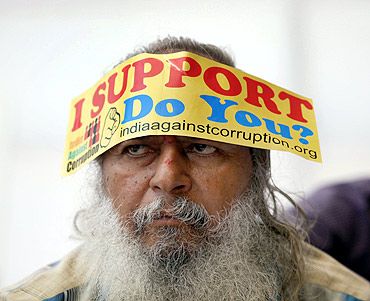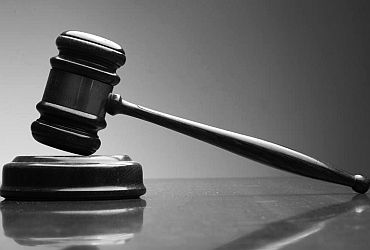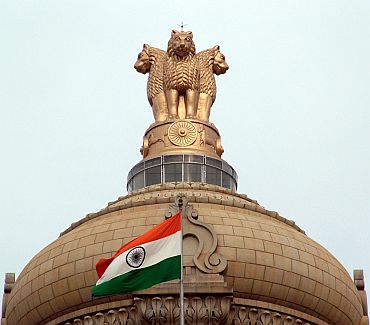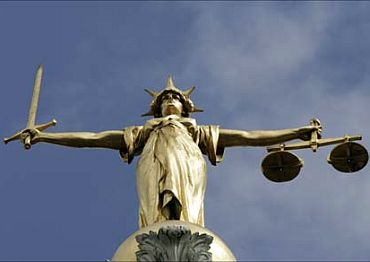
Rediff.com's Vicky Nanjappa looks at the stumbling blocks that need to be overcome before the Lokpal Act becomes a reality
The Lokpal Act is expected to become a reality in the next five weeks, a source in the drafting committee has informed.
While the jurisdiction of the Lokpals is under debate currently, the primary issue would be pertaining to the number of Lokpals that would be appointed once the drafting of this act is completed and the Parliament approves of the same.
There is currently a tussle on between the government and the Anna Hazare-led group over the number of Lokpals.
While the government is insisting on 3 Lokpals, the other side has sought the appointment of 11 Lokpals comprising four retired judges, two bureaucrats and five eminent personalities.
Click on NEXT to read further...

Some members of the drafting committee, especially from the government side, have raised objections to the Hazare group's demand, stating that there ought to be just three Lokpals each of whom had considerable legal knowledge.
If persons without legal expertise are included it could lead to havoc, they contend.
The government also doubts that the demand to include more Lokpals could lead to some persons furthering their agenda.
A source also says that currently the matter is being debated with all seriousness and it should not take more than five sittings for the final version of the act to come out.
There are certain issues, which are being debated currently, but they are hopeful of cutting the ice on the same.


Another main issue is concerning corruption at the state government level.
Currently, there are only a couple of states that have specific laws and persons to deal with acts of corruption. Ironically, a majority of the states till date do not have a Lokayukta, who specifically deals with corruption cases.
However, there would be a clause in the new act, which would cover the states. In case of a complaint of corruption from a state where there is no Lokayukta, the matter could be directly referred to one of the Lokpals.
Under the new act, the Lokpal can entertain such a complaint and then refer it to an agency in the respective state for a report. Based on the report, the Lokpal would be able to act.
The issue of jurisdiction is one of the most keenly debated issues. A suggestion that has been made is that since most of the state governments have not even bothered to set up a Lokayukta, the Lokpal act should be made applicable to all states. This is a key portion of the act, as corruption is more rampant in the ground level, some of the members have pointed out.